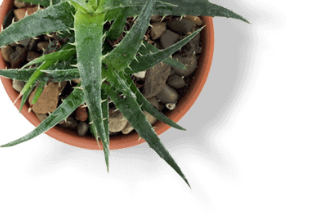Gartner predicts that there will be about 20 billion devices connected to IoT development by 2020 and that IoT product and service providers will add a $ 300 billion business in revenue. Without a doubt, the connected world of the Internet of things is evolving at a great pace. Now everyone is looking for the future of IoT and how it will affect our lives soon. Here are the 14 main IoT technology trends that will define the future of IoT in 2020 and beyond. Smart home devices will skyrocket in popularity.
Smart home devices will skyrocket in popularity
Even those who discarded smart home technology as unrealistic toys for lazy young people find it increasingly difficult to resist the charms of smart home devices with IoT.
These devices will be very popular in 2019 and the coming years, as they become highly intuitive and innovative and extend not only to the comfort of home automation, but also to the safety of the home and the safety of your family.
Dryers that warn you when lint buildup is too high can prevent a fire. That is the kind of smart home functionality that will see a great adoption in 2019 and the coming years.
Another great driver of the intelligent adoption of IoT development is the need to save energy.
Edge Computing will be important about cloud computing
This will be a change to be careful. For a long time, IoT devices have relied on the cloud to store their data. However, development and IoT developers and manufacturers are beginning to realize the utility of storing, calculating and analyzing data to the limit.
This means that, instead of sending all the data from the IoT device to the cloud, the data is first transferred to a local device located closer to the IoT device.
This local storage device can sort, filter and calculate the data and then send all or only part of the data to the cloud, reducing traffic to the network.
First, it helps to better manage the large amount of data that each device sends. Reduced dependence on the cloud helps applications run faster and reduce latency.
By being able to collect and process data locally, the IoT application consumes less bandwidth and works even when cloud connectivity is affected. Due to these positive aspects, cutting-edge computing will see innovation and wide adoption in IoT, both consumer and industrial. Reduced participation in the cloud facilitates better security practices and reduces connectivity costs. 2020 will see more use of next-generation IT in IoT.
Medical care will see greater adoption of IoT
One of the most important applications of IoT is undoubtedly in the field of medical care, and next year we will see how medical care adopts IoT skills.
Devices such as sensors, portable devices, medical equipment, health monitors and a variety of other medical devices are configured to connect to IoT.
From health service providers to the general population, everyone knows technology better than before and this is intended to increase the adoption of IoT in the world of medicine forever.
Mobile health applications and virtual assistants to monitor the health of the patient at home, portable devices and intelligent implants that communicate the parameters of the patient, smart cars that monitor the vital signs of the patient in transit and a series of other connected smart devices configure the remodeling of the medical world.
IoT security will be a higher priority
As adoption increases, more and more devices connect to the Internet of things. The network expands, data volumes increase and there is more information at risk.
The increased use of IoT should be accompanied by a greater boost to IoT security. With vital data floating in the cloud, patient health and home security are at risk and the development of mobile applications based on IoT will have to be safer than ever.
As of now, not all IoT devices are equipped with the type of security features that laptops and computers are equipped with. In the next year, that will have to change.
Machine-to-machine authentication will overlap, biometric logins will become the norm, and artificial intelligence, machine learning and big data techniques will be used to identify and frustrate data breaches.
AI and Big Data
With billions of consumer and industrial devices connected to IoT and data transmission, the amount of data that must be processed and analyzed will grow exponentially.
The idea is not only to collect data, but also to extract actionable information from this data and that some artificial engineering and big data techniques will be needed to process all that information.
A convergence of AI, IoT and Big Data will lead to a wave of new generation applications and advances. It can be difficult to see any of these in isolation.
Blockchain for IoT security
Many financial and government institutions, entrepreneurs, consumers and industrialists will be decentralized, autonomous and quite intelligent. Some of the new companies are seen building their tangled territory in IOTA (IOTA is a distributed ledger specially designed to register and execute transactions between devices in the IoT ecosystem) to develop modules and other components for companies without the cost of SaaS & Cloud
You should prepare to see the centralized and monolithic computer models that are separated in jobs and micro services that will be distributed to decentralized machines and devices. Someday, IoT will penetrate the health, government, transactions, finance and other disciplines that people these days cannot think about.
Better data analysis
The next few years will surprise us with the biggest trend that will occur between the IoT and the connected world. Now, how the world and IoT combine with AI to become a decision-making assistant for all people and businesses, and that’s all we expect.
AI is a machine learning system that can easily identify trends. In addition to this, it collects information from considerable data to make better decisions for our lives. It seems that the integration of IoT is less thoughtful, intelligent and is also self-learning.
Smart cities to become the mainstream
In the past, we have seen that states implemented more technologies and sensors to take advantage of accessible data collection tools. Soon, we will see the IoT Trends where cities with a vision of the future will invest in pioneering exchanges of data that will allow access and fusion of data between public and private organizations together with citizens.
We will have the opportunity to see soon the conversion of the thought of several smarter cities. The integration of IoT with receptive cities will unlock sustainable development, decrease traffic congestion and improve security.
Customization of retail experience
IoT makes retail supply chain management even more efficient today. With the help of sensors and other smart beacon techniques, adapting the shopping experience has become much easier and people can do it more accurately.
According to the new changes, IoT Trends of the following years will personalize your commercial presence. You can imagine receiving a discount notification on a product generally purchased at your favorite store, but can you also imagine an internal map of your favorite store that takes you to the exact product you want?
Predictive maintenance powered by IoT
In 2020 and beyond, the home will inform homeowners about plumbing leaks, appliance failures, electrical problems so that homeowners can avoid the home maintenance disaster. More of the characteristics of the sensors in factories, airplanes and automobiles that can be achieved today will soon enter your home with the help of all these IoT Trends.
In response to these predictive IoT skills, we will see home care offerings as a contractor service. No matter if you are at home or not, they will take action immediately when a problem is perceived.
Currently, several home insurance companies already know the changing nature of smart sensors and other connected devices that greatly affect the Internet trends of things. Sensors found in cars, such as national insurers, will be able to reduce risk and other payments during the supply of lower rates to consumers who will install proactive monitoring systems to avoid damage.
Software as a service becomes the norm
If we talk about the technological trends of IoT, software as a service is considered one of the hot topics for the estimated markets. With the help of the low cost of entry, SaaS is quickly reaching the list of the best for being also the favorite firm in the IT gaming sector, and soon we will have the opportunity to see an extensive defense of the company. Software as a service among all these technological trends of IoT will improve people’s lives better than ever.
Creating a unified framework for integration
The lack of a unified IoT framework is something that the Internet of things has faced as a challenge in cooperating with industries. Several companies do not have a shared central platform. All the Internet trends of the things I mentioned before include a unified framework, since this is the only way to keep industries safe.
Blockchain will help accelerate the adoption process with the help of improving and developing mobile or web applications. These are the applications that have high performance thresholds, and this process will also help maintain the data intensive process that is generally required.
Energy and resource management
Energy management depends largely on the acquisition of a better understanding of consumption. Most of the time, the products that can fit in the electrical panels reach the market, and these can monitor very well the energy consumption of the home. All these technological trends of IoT can be easily integrated into resource management, which will make people’s lives easier and more comfortable.
Automatic notifications can also be added to send notifications with smartphones when the power threshold is exceeded. Other features such as sprinkler control, indoor temperature management, etc. can also be added.
Greater consumer adoption
In the next 10 years or so, you will see a big change in the Internet of things when the consumer-based IoT change occurs, as well as Lily Robotics market failures. The growth of consumer-based Internet of things financing will decrease, and the future will be the year for the industrial IoT platform and infrastructure. These Internet of things trends will require time to evolve.
Companies like BetterView, Veniam and Swift Navigation are based on Industrial-IoT will see the construction of the Internet of Things architecture, solve difficulties in insurance, agriculture, transport or telecommunications, and will see a vivid reduction in capital expenditures.
Conclusion
Both consumer and industrial IoT will see great advances and a series of connected devices, but the whims of some people know about technology will become common.
Of course, new technologies will emerge that will make IoT more intuitive and easy to use, but to a large extent, manufacturers will have to work harder to protect their connected devices, since the risk to the data will also increase. Amid all these trends and predictions, the future is promising and certainly worth waiting for.
If you have any IoT application development requirements, do not hesitate to contact us. We are a leading mobile application development company that offers a mobile application based on IoT full of functions according to your choices.
Also Read
Top 10 IoT Development Company in Chicago
Top 10 IoT Development Company in The USA
Why We Are The Best IoT Development Company In Eastern Europe
How IoT is Reinventing Businesses Today?
What Is The Role Of Android In IoT?
Challenges of UX Design for IoT and Tips to Beat Them
Recent Articles
The Top 10 Successful App Developers...
Hiring an app developers company is no easy feat. In...
Top 10 Innovative Mobile App Developers...
San Francisco has an incredibly diverse and a magnificent tech...
Top 10 Most Trusted Mobile App...
Houston boasts of a splendid tech landscape that is mushrooming...






